Introduction

The Growing Concern for Baby Eye Health
In recent years, there has been a notable uptick in parental concern regarding baby eye health. As outdoor activities become more common and sun exposure increases, parents are asking themselves, Should I put sunglasses on my baby? This growing awareness highlights the importance of protecting tiny eyes from harmful UV rays that can lead to long-term damage.
Understanding UV Exposure and Its Effects
UV rays are not just an adult problem; they can be particularly harmful to babies whose eyes are still developing. Research suggests that infants' eyes allow more UV light to penetrate than adult eyes, making them more vulnerable to potential harm. As we delve deeper into this topic, it's essential to understand how UV exposure can affect early development and what steps we can take to safeguard our children.
Do Babies Really Need Sunglasses?
The question looms large: do babies need sunglasses yes or no? While some may argue that infants should simply avoid direct sunlight altogether, experts suggest that appropriate protective eyewear is crucial when outdoors. In fact, understanding when should you start wearing sunglasses can help ensure your child's eyes remain safe while they explore the world around them.
The Science Behind Baby Eyes
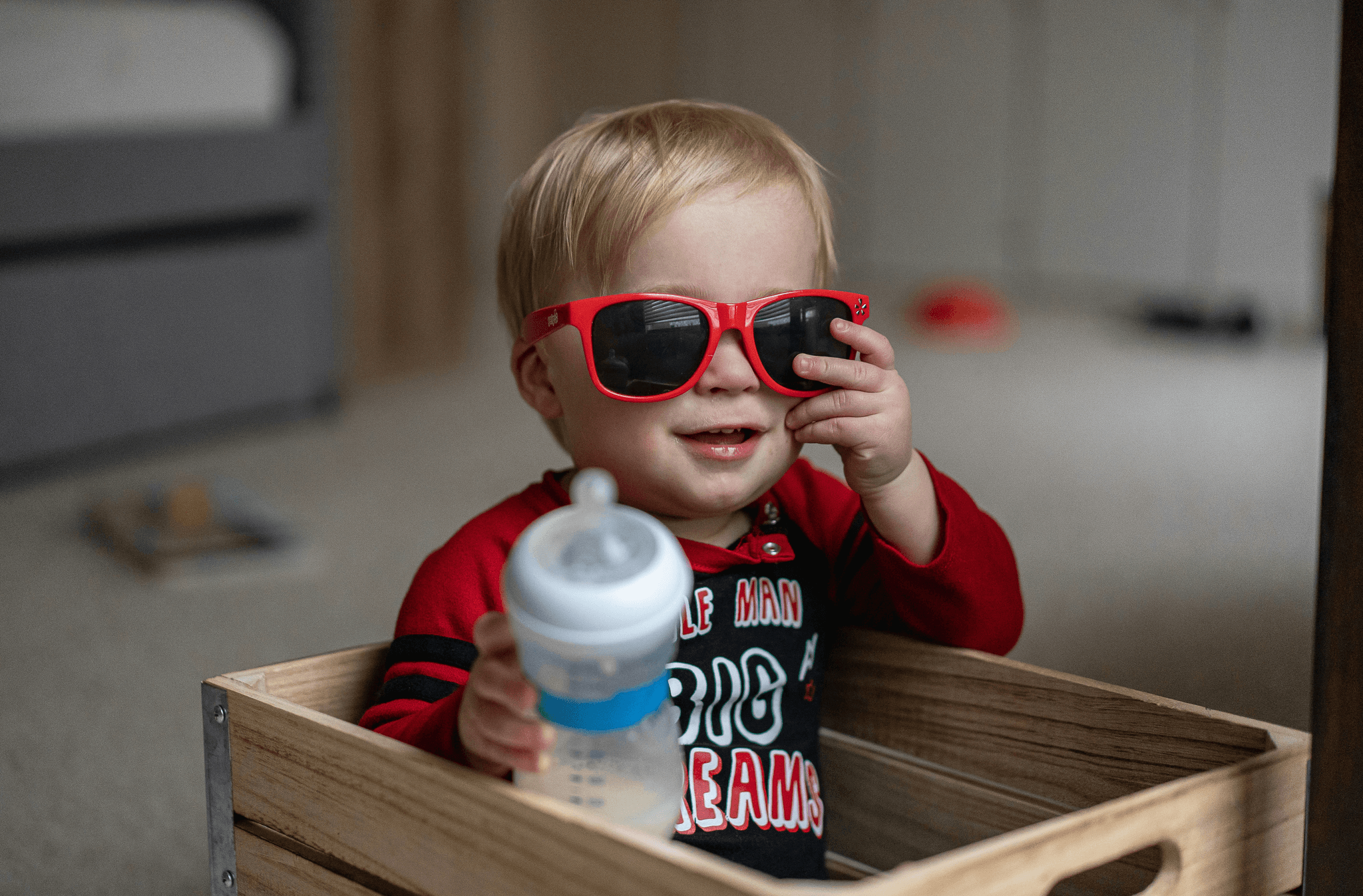
Are Babies More Susceptible to UV Rays?
Yes, babies are indeed more susceptible to UV rays than adults. Their eye lenses are clearer and less able to filter out harmful light wavelengths, which means that a higher percentage of UV rays can penetrate their eyes. This raises the question: should I put sunglasses on my baby? The answer is a resounding yes—protecting their eyes from early exposure is essential for long-term health.
Moreover, studies indicate that even short periods of exposure can have lasting effects on a baby's vision development. Parents often wonder about the necessity of sunglasses for infants and toddlers; however, the evidence clearly points toward proactive protection as a wise choice. Thus, when should you start wearing sunglasses? It's best to introduce them as soon as you're taking your baby outdoors in bright sunlight.
How UV Damage Affects Early Development
UV damage during infancy can lead to various eye issues later in life, including cataracts and macular degeneration. This makes it crucial for parents to ask themselves: do babies need sunglasses yes or no? The consensus is that safeguarding their vision from an early age is vital for healthy development.
Research shows that prolonged exposure to UV rays can disrupt the natural growth of the eye's structure and function. When considering what age kids should start wearing sunglasses, it's important to remember that even infants aged 3-6 months can benefit from proper eye protection during outdoor activities or sunny days at the park. By prioritizing this aspect of baby care now, parents set their children up for healthier eyesight in adulthood.
Insights from the NHS on Baby Eye Safety
According to insights from the NHS on baby eye safety, protecting young eyes from UV exposure is not just advisable but necessary. They emphasize that babies’ eyes absorb more sunlight than those of adults due to their developing lens and retina—making effective sun protection critical at all times of year. If you're still questioning whether do babies need sunglasses NHS guidelines clearly advocate for using protective eyewear whenever your little one is outside.
The NHS also recommends choosing high-quality shades designed specifically for infants; these often feature 100% UV protection alongside impact-resistant lenses for added safety during playtime adventures. As you browse options like best baby sunglasses available in stores or online, look out for features like wraparound designs that provide comprehensive coverage against bright light and glare while keeping your child comfortable.
Guidelines from Pediatricians
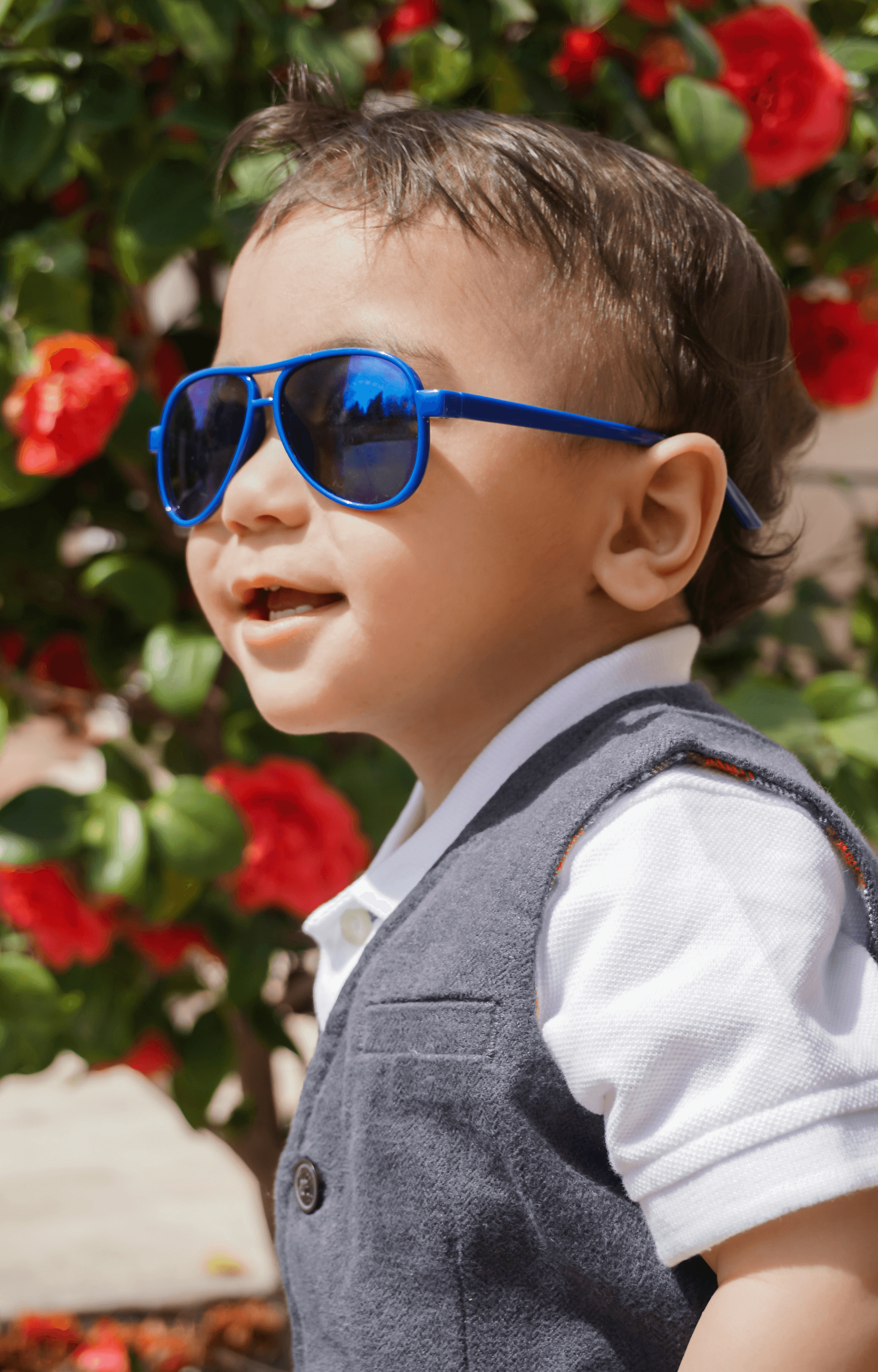
General Recommendations for Baby Sunglasses
Pediatricians generally recommend that babies wear sunglasses whenever they are outdoors, particularly during peak sunlight hours. This is especially true for infants as young as six months old; yes, even baby sunglasses 3-6 months old can provide essential protection! Parents should look for options that offer 100% UV protection and wraparound styles to shield those tiny peepers from harmful rays effectively.
When selecting the best baby sunglasses, consider lightweight materials and flexible frames that can withstand a bit of rough handling—because let’s face it, babies aren’t known for their gentleness! Additionally, ensure that the lenses are shatterproof to avoid any accidents. So when pondering “Should I put sunglasses on my baby?”, remember that proper eye protection is key to promoting healthy eye development.
Should I Put Sunglasses on My Baby? Expert Opinions
Many pediatricians advocate for early introduction of sunglasses as part of a child’s outdoor gear. The consensus among experts is clear: “Do babies need sunglasses?” Yes! They emphasize that even short periods of sun exposure can lead to long-term damage if left unprotected.
Furthermore, experts suggest making wearing sunglasses a fun activity rather than a chore—after all, who wouldn’t want their little one looking like a mini rock star? Incorporating shades into playtime or family outings can help normalize this protective habit from an early age. So next time you wonder “Should I put sunglasses on my baby?”, just think about how cool they’ll look while keeping their eyes safe!
What Age Should Kids Start Wearing Sunglasses?
So when should you start wearing sunglasses? Pediatricians typically recommend introducing them around six months old—this is when your baby's vision starts becoming more acute and they begin spending more time outdoors. By establishing this routine early on, you're setting up good habits for years to come.
As children grow older and become more active outside—think playgrounds and beach days—the importance of wearing proper eyewear only increases. In fact, many experts advise continuing this practice into toddlerhood and beyond; after all, UV rays don’t take breaks! So if you’re still asking yourself “What age should kids start wearing sunglasses?”, rest assured that starting young will only benefit your child's eye health in the long run.
Choosing the Right Sunglasses
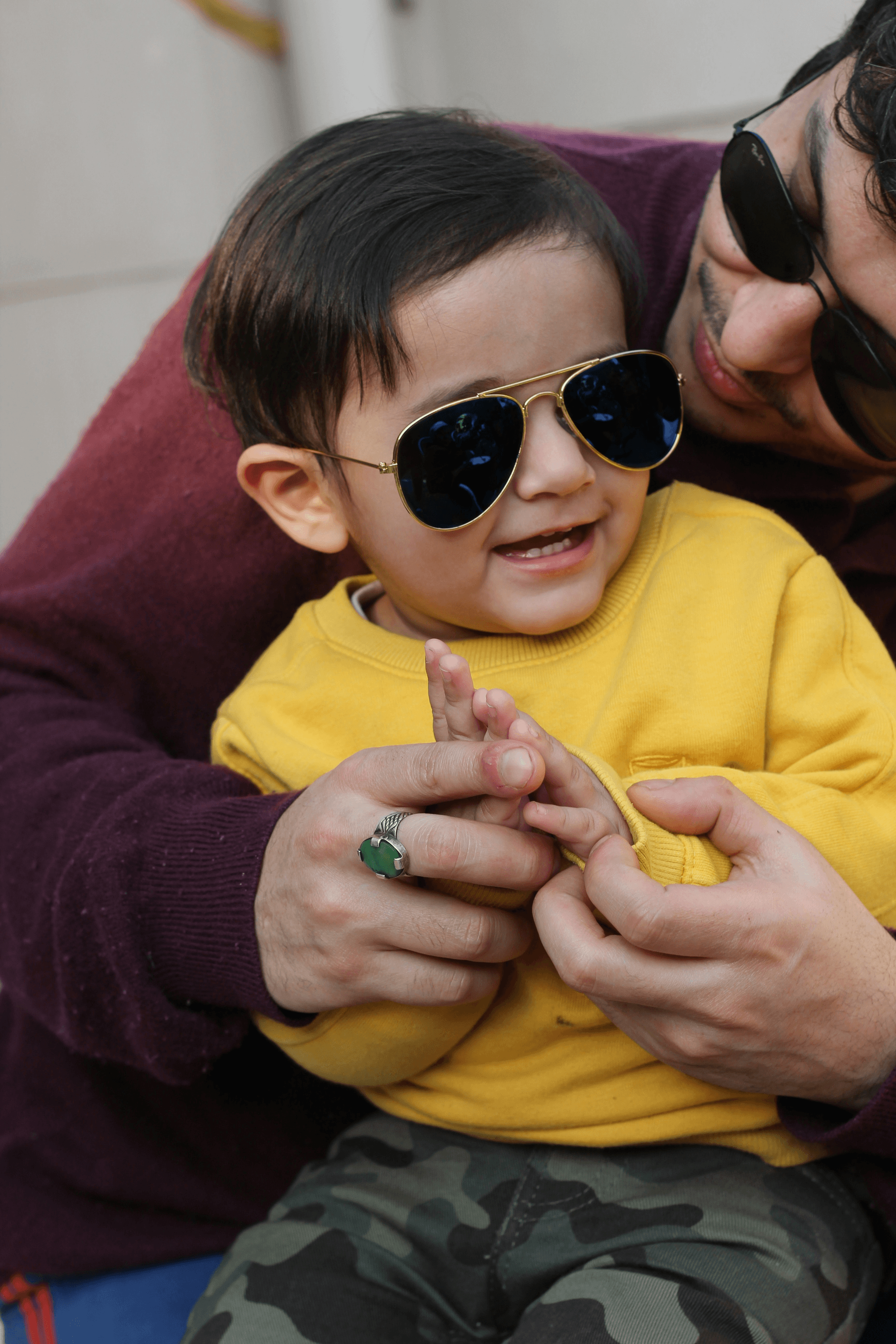
Key Features of the Best Baby Sunglasses
The best baby sunglasses should be lightweight and comfortable, ensuring that your little one can wear them without fuss. Look for styles that have a secure fit—elastic bands or adjustable straps can make all the difference in keeping those shades in place. Additionally, consider polarized lenses; they reduce glare and enhance visual clarity, making outdoor adventures more enjoyable for both of you.
When selecting baby sunglasses 3-6 months old, prioritize flexibility as well. Babies are curious creatures who love to explore their surroundings; thus, durable materials that can withstand some tugging are essential. Remember that comfort is key; if they’re too tight or heavy, your baby may resist wearing them altogether.
Importance of UV Protection in Baby Sunglasses
Understanding whether do babies need sunglasses goes beyond mere aesthetics—it’s a matter of health and safety! Babies’ eyes are more susceptible to UV damage than adults’, making effective UV protection non-negotiable. According to studies and guidelines from reputable sources like the NHS, prolonged exposure to UV rays during infancy can lead to serious eye issues later in life.
Sunglasses with 100% UVA and UVB protection are vital in shielding those precious peepers from potential harm. Just because they’re small doesn’t mean their eyes aren’t vulnerable; investing in quality shades now will pay off down the road by promoting healthy vision development. So when pondering “What age should kids start wearing sunglasses?”—the earlier, the better!
Top Brands for Infant Sunglasses Worth Considering
If you’re still wondering about specific brands while searching for do babies need sunglasses yes or no? Rest assured there are plenty of reputable options available! Brands like Babiators and Baby Banz offer stylish yet functional designs tailored specifically for infants and toddlers alike.
Babiators are known for their fun colors and sturdy construction while providing excellent UV protection—perfect for adventurous little ones! Meanwhile, Baby Banz focuses on comfort with soft frames designed to stay put during all kinds of playtime activities. When choosing between options like these or others out there, remember: safety first!
When to Introduce Sunglasses
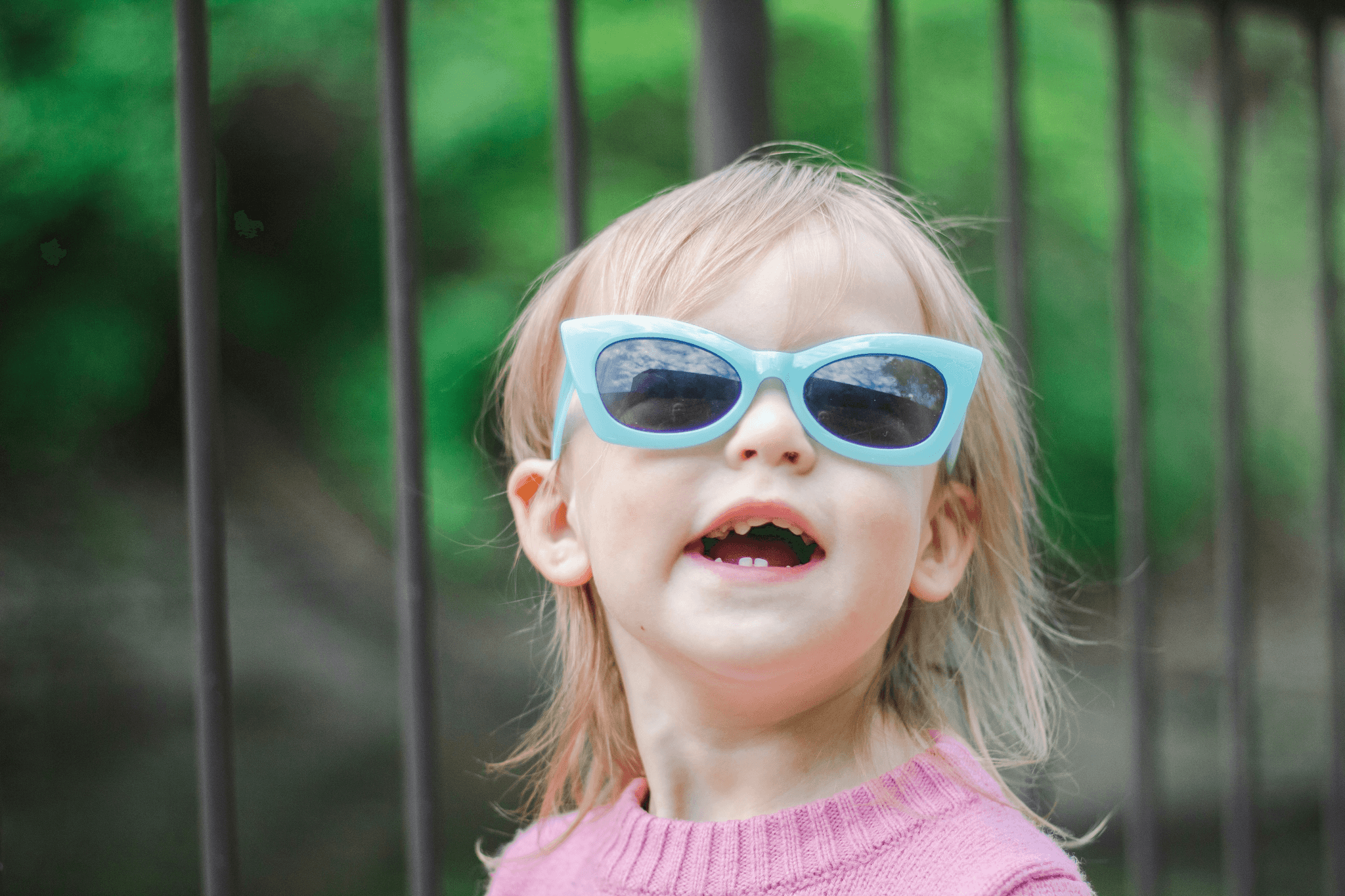
When Should You Start Wearing Sunglasses?
So, do babies need sunglasses? Yes! Pediatricians often recommend that parents start putting sunglasses on their babies around the age of six months. This timeframe aligns with when babies are more actively exploring their environment and spending time outdoors, making it crucial to protect their sensitive eyes from harmful UV rays.
Signs That Your Baby Needs Sunglasses
You might wonder, Should I put sunglasses on my baby? If you notice your baby squinting or becoming fussy when exposed to bright light, these could be signs that they need some eye protection. Additionally, if your baby is frequently outdoors during sunny days or attending events where sunlight is unavoidable, it's time to invest in a good pair of shades.
Seasonal Considerations for Baby Sunglasses
Seasonal changes can greatly influence the necessity for baby sunglasses. During summer months or vacations at sunny destinations, the question Do babies need sunglasses yes or no? becomes even more relevant. In winter too—especially in snowy areas where glare can be intense—protecting those tiny eyes with the best baby sunglasses is essential for maintaining their eye health.
Real Parents’ Experiences

When it comes to the question of whether do babies need sunglasses, parents have mixed feelings. Some believe that shielding their little ones from harmful UV rays is essential, while others think it might be an unnecessary fuss. The consensus seems to lean towards a cautious approach; after all, protecting those delicate baby eyes is a top priority.
Do Babies Need Sunglasses Yes or No? Parenting Perspectives
The debate about whether do babies need sunglasses often leads to passionate discussions among parents. Many agree that while infants may not need sunglasses at every moment, there are certainly times when they should be worn—especially during sunny outings or beach days. Additionally, pediatricians often emphasize that the sun can be particularly harsh on young eyes, leading many to conclude that yes, babies definitely benefit from wearing sunglasses.
Parents frequently ask themselves, Should I put sunglasses on my baby? The answer usually hinges on the situation: if you're planning an outdoor adventure in bright sunlight, then absolutely! However, some parents worry about their babies' comfort and whether they will keep them on—an understandable concern given how squirmy little ones can be.
Testimonials on Baby Sunglasses 3-6 Months
Parents with babies aged 3-6 months often share their experiences with baby sunglasses and how they introduced them into their routines. One mom recalls her first outing with her 4-month-old in a park: I was nervous about putting baby sunglasses on him for the first time, but he loved them! He giggled when I put them on and seemed more comfortable looking around without squinting.
Another parent highlights the importance of choosing the best baby sunglasses: I found a pair that offered 100% UV protection and had flexible frames—perfect for my little one who loves to grab everything! These testimonials reinforce that while some initial hesitation exists around do babies need sunglasses yes or no, many find positive outcomes once they take the plunge.
Common Myths Surrounding Baby Sunglasses
Several myths surround the topic of do babies need sunglasses which can confuse well-meaning parents. One common misconception is that infants' eyes are naturally protected by their eyelids; however, this isn't entirely true as UV rays can still penetrate through thin eyelid skin. Another myth suggests that only older children need protection from sunlight—a notion debunked by organizations like the NHS which stress early eye safety.
Additionally, some believe it's too early to start using any form of eyewear for infants; however, experts advise introducing baby sunglasses as soon as your child starts spending time outdoors in bright conditions. With so much misinformation out there regarding what age should kids start wearing sunglasses and when should you start wearing sunglasses altogether—it’s vital for parents to stay informed!
Conclusion
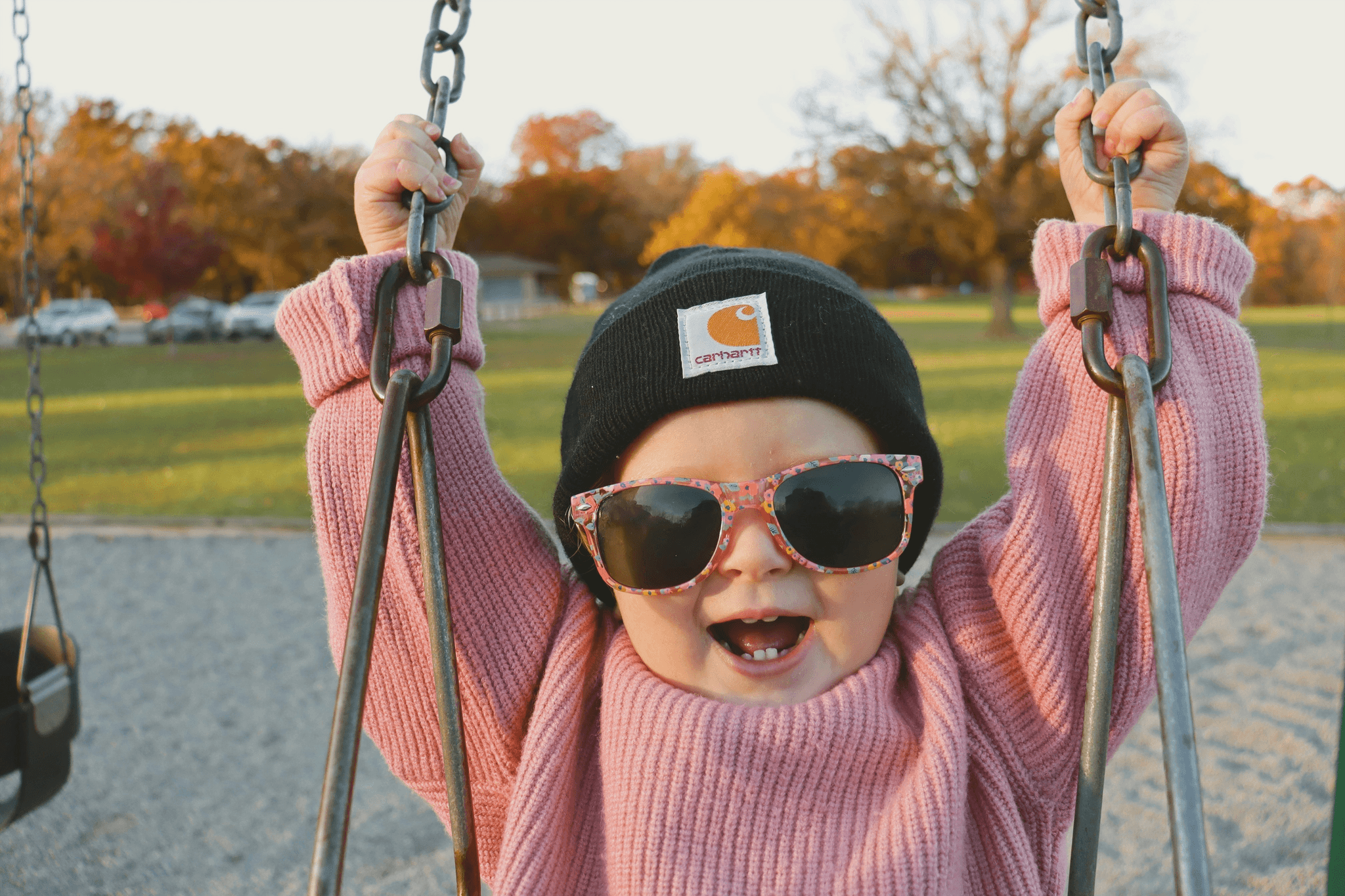
Protecting our little ones' eyes is a responsibility that shouldn't be taken lightly. As parents, we often wonder, Do babies need sunglasses? The answer is a resounding yes! Just like our skin, baby eyes are delicate and more susceptible to UV damage. By taking proactive measures now, we can ensure a brighter future for their vision.
Protecting Young Eyes for a Brighter Future
The concern surrounding baby eye health is growing, with many parents questioning whether they should put sunglasses on their babies. Research shows that UV exposure can have lasting effects on eye development, making it crucial to shield those tiny peepers from harmful rays. So, when should you start wearing sunglasses? The earlier the better; even babies as young as 3-6 months can benefit from proper eye protection.
The Role of Brands Like Daposi in Baby Eye Care
Brands like Daposi are stepping up to the plate by offering some of the best baby sunglasses on the market today. They prioritize not just style but also essential features like UV protection and comfort for little ones. With recommendations from sources like the NHS emphasizing the importance of sun safety, it's clear that investing in quality baby sunglasses is not just a trend; it's a necessity.
Final Thoughts on Baby Sunglasses Necessity
Ultimately, when faced with questions like Do babies need sunglasses yes or no? or What age should kids start wearing sunglasses?, the consensus leans heavily towards yes—earlier rather than later! As parents navigate outdoor adventures with their children, ensuring they have appropriate sun gear is key to safeguarding their developing eyes. Remember: protecting young eyes today means paving the way for healthier vision tomorrow.
